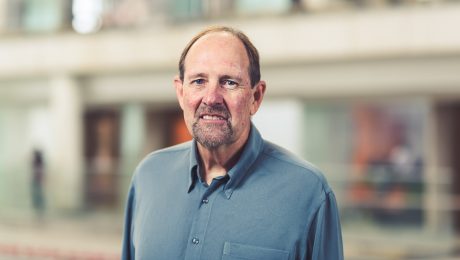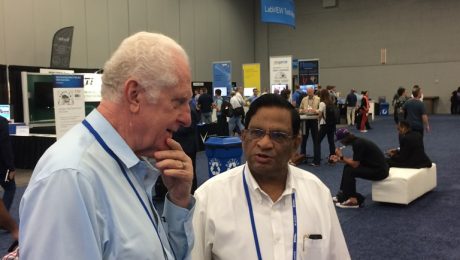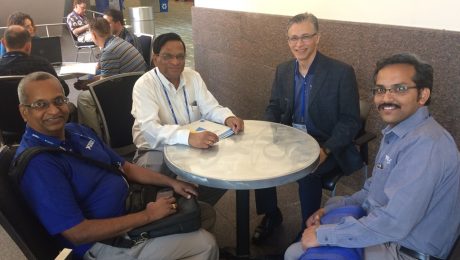Why is industry gradually shifting towards hiring Liberal Arts students?
To study Liberal Arts is like possessing a power- a power that has the ability to change the world, one action at a time. Therefore, SRM University- Andhra Pradesh, is leaving no stone unturned to create the School of Liberal Arts and Basic Sciences (SLABS) as a place for students to push themselves beyond the given- question the norms, go against the tide, improvise, ideate and innovate.
- Published in Blog, Liberal Arts, News
Industrial Internet of Things (IIoT) instead of International Internet of Things
Prof D Narayana Rao, Pro Vice Chancellor, SRM University-AP, Amaravati discussing at Austin, with Dr James J Truchard, Chairman and Cofounder, National Instruments (NI), Austin, Texas, USA about establishing an Internation IoT (IIoT) laboratory at SRM University – AP, Amaravati.
- Published in News
India Students Innovation Centre at SRM University – AP, jointly by National Instruments, USA and SRM University- AP
Prof D Narayana Rao, Pro Vice Chancellor, SRM University-AP, Amaravati discussing at Austin, with Dr David E Wilson, Vice President, National Instruments (NI), Austin, Texas, USA about establishing “India Students Innovation Centre” at SRM University – AP, Amaravati jointly by National Instruments, USA and SRM University- AP.
- Published in News
Training for Indian Gaming Development Challenge
Date: June 1, 2018
Ongole: The Andhra Pradesh State Skill Development Corporation and Kajaani University from Finland are offering training programme for eligible candidates in game development for participation in Indian Gaming Development Challenge 2018, announced the Prakasam district manager for APSSDC, Shaik Meeravali.




